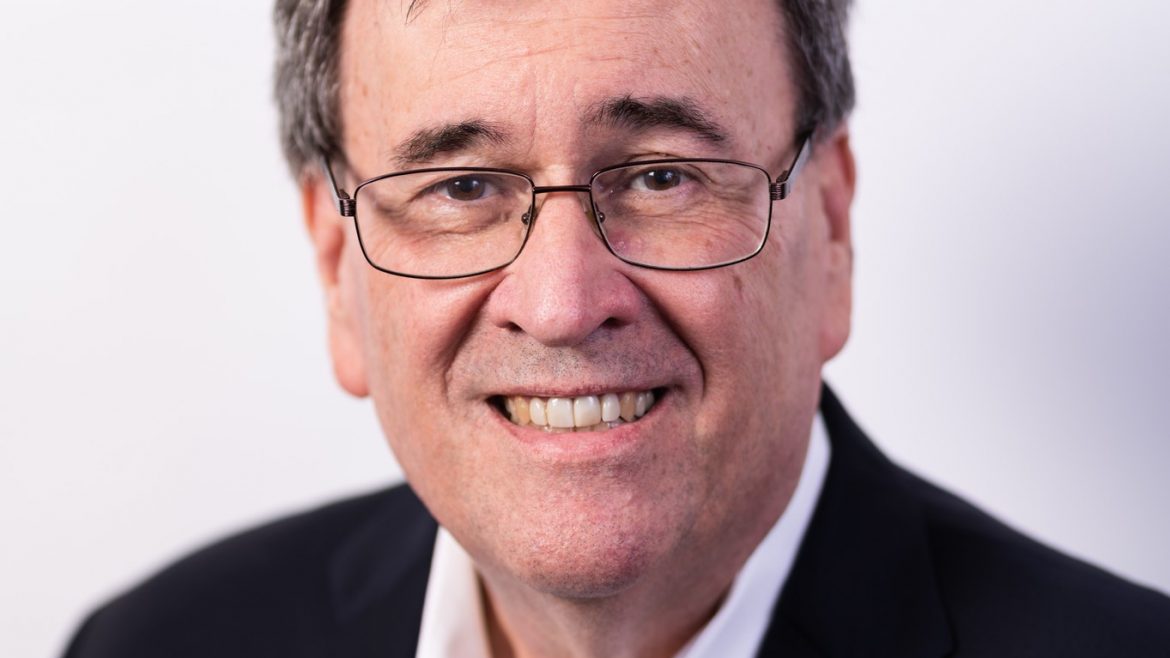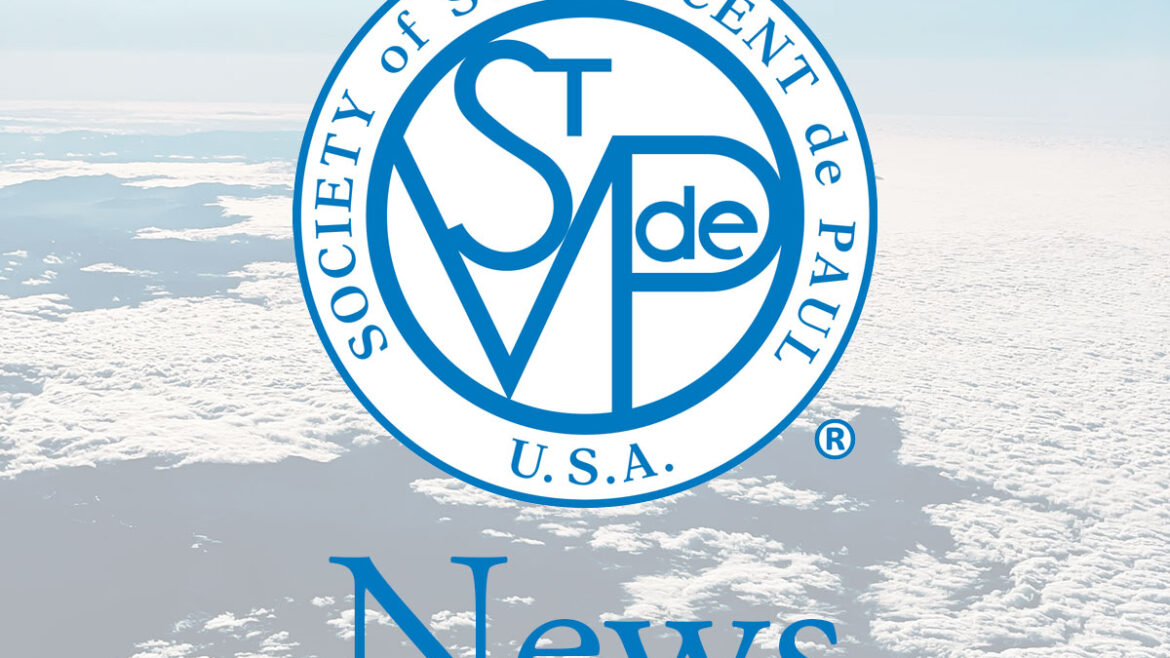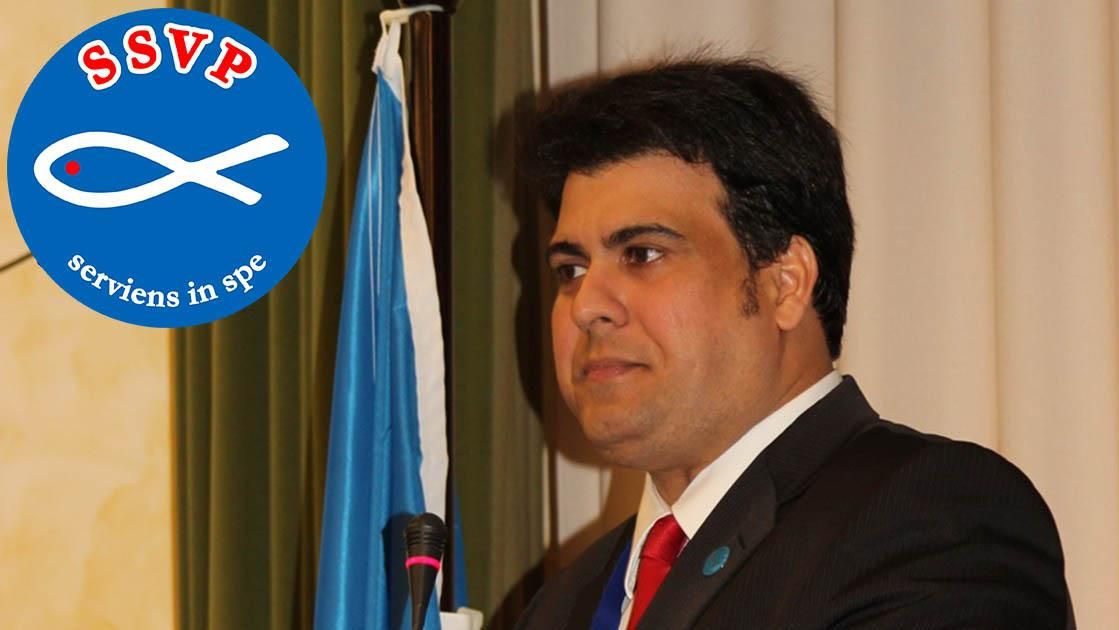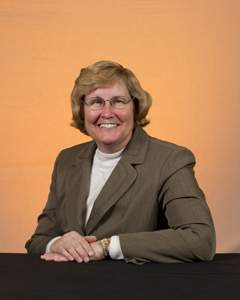The famous, definitely non-Catholic film director Woody Allen once said that half of success in life is just showing up. As Catholics and Vincentians we have a new opportunity to prove this axiom over the next two years – but starting now.
His Holiness Pope Francis and the global Church have called for a Synod among all of the faithful. This consists of listening sessions across the world to help frame the future of our faith. Listen to whom? At least in the United States among its Bishops, the goal is to hear from all Catholics certainly, but also those we serve and especially the marginalized.
This month I will be attending Mass in four different dioceses. Thus far, each has included a Synod reference, but each one has been different, so we can assume that the process is flexible among the Bishops to organize this listening and reporting experience. Some Bishops are putting this process at the center of their work over months ahead, while others are, well, perhaps not so much.
How can our Vincentians “show up” for this experience? I suggest we do so in three distinctly different ways if they are available to us. First, of course, we have an obligation as local parishioners to participate as we are able, each with our own personal perspectives of our faith, faith life, and the opportunities ahead of all of us.
Secondly, we can participate in the Synod as Vincentians who have a unique view of our community’s economy, poverty, and other needs. Remember that we have such a unique voice as the “ground troops” in helping our neighbors in need, as we are usually the only group working in the homes of those we serve. This allows us a closer, friend-based perspective, often with continuing relationships that other Catholics do not enjoy as we see the Face of Christ in those we serve. However, please be careful that you do not “speak for the Society.” Only the National President can do this nationally, and local Council Presidents are permitted to speak on behalf of the Society when the subject pertains to local need, polices, and other matters.
The third way we can participate is two-fold. First, as Voice of the Poor volunteers we can speak on behalf of those who are at the margins of our society and who may have no voice. However, secondly we should not always assume that the poor have no voice, and this Synod experience may be exactly the venue for their voices to be heard by the Church. Instead of speaking for others, we can also try to get our neighbors in need to the table and to speak for themselves. This may be the most powerful of the ways we can participate – by giving a voice to others who often don’t have one.
Many focus group experiences – and at this time that’s how I see the Synod unfolding with our limited knowledge thus far – succeed or fail based on two factors. The first is the composition of the participants, and the second is the questions used in the process. It is easy to consciously or unconsciously predict the outcome by subtle manipulation of these two factors. At this time, we have not seen a standard set of Synod questions to be asked, and we don’t know if the same questions will be basked of all types and groups of participants. Will they be different in the United states than in Nigeria or Argentina? Will the type of question suggest an expert set of respondents, or does everyone get to answer everything, meaning that 95 percent of respondents will always be unfamiliar with the subject matter and have perhaps nothing of consequence to contribute?
At this point, there is more that we don’t know than what is known. Our National Council staff and leaders are working with the USCCB to get some clues as to the process and desired outcomes in order to give you a better opportunity to be heard and to make a difference. We will send what we learn in this egazette and perhaps separately to our Council leaders. For now, I urge you to seek out the Synod opportunity in your Diocese, share what you learn with your Conference members, and to “show up” as you are able. Please bring, or help send, friends in need to this process as well.
We speak often about ourselves and our neighbors in need being at the table. This Synod process may be a messy table to join, but we need and deserve to be included. We have the skills and knowledge, and for certain the experiences, that the Church needs to hear to be successful. Let’s show up in person and in Vincentian spirit to help.







